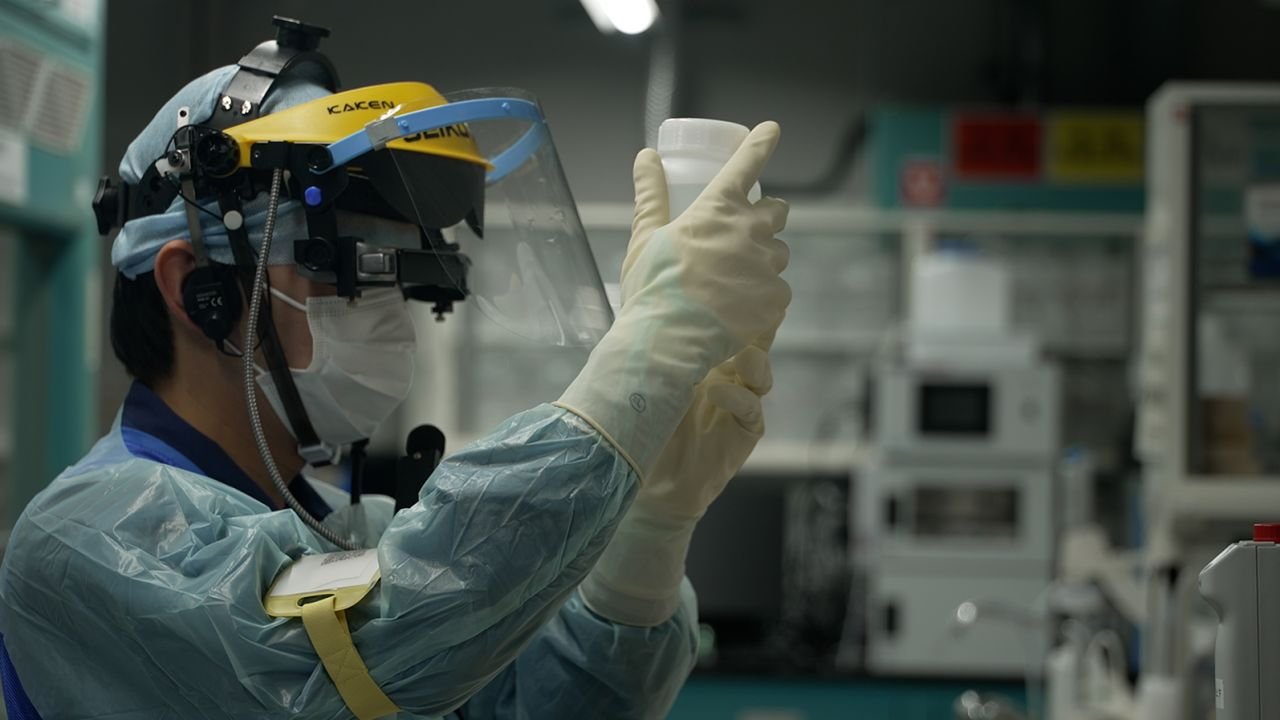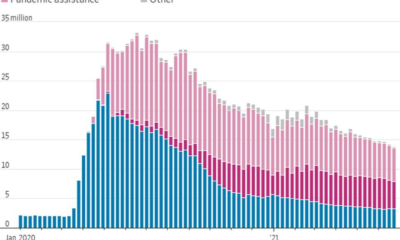Real Estate
Statement from the Minister of Health on the Canada Health Act

Universal, accessible and publicly funded healthcare is a point of pride for Canadians, and protecting it is a priority for our government. Collectively, we have made the choice to leave no one behind and deny no one necessary care, regardless of their ability to pay.
Under the Canada Health Act, it is made clear that no Canadian should be paying out of pocket for medically necessary services. Provinces and territories have taken meaningful steps, but more work is needed to ensure that there are no patient charges for insured health services. There has been evidence of residents paying out of pocket to access diagnostic services such as ultrasounds, MRI and CT scans—services that should be accessible at no cost. This is not acceptable and will not be tolerated.
Over the coming weeks, our government will issue Canada Health Transfer payments, and deductions for patient charges levied during fiscal 2020-2021 will be applied, including the first-ever deductions under the Diagnostic Services Policy. Through this process, we are ensuring that Canadians don’t pay out of pocket for medically necessary services. Let it be clear, these deductions reflect an estimate of the amount paid out of pocket by Canadians to access insured health services that should be free of charge. We will work with provinces and territories to eliminate future patient charges and the circumstances that led to them. In doing so, provinces and territories may be eligible for reimbursement of their deductions under the Canada Health Act Reimbursement Policy.
In addition, this week I sent a letter to my provincial and territorial colleagues to reinforce the shared responsibility to protect our universal, publicly funded healthcare.
As the nature of care evolves, we must ensure the Canada Health Act evolves with it. During the pandemic, we have seen new ways of providing care. While there are many benefits to these, we have also seen an increase in reports of new patient charges to access insured health services that would otherwise be covered if provided in-person by a physician. It is critical that access to medically necessary services, whether provided in-person or virtually, remains based on medical need and free of charge. My communication to my provincial and territorial counterparts is a reminder of our collective responsibility in ensuring Canadians’ ability to access medically necessary services without having to pay out of pocket, no matter where they live or how care is delivered.
As we continue to work together with provinces and territories to improve our healthcare system, Canadians expect us to do so in a manner that strengthens its public, accessible and universal nature, which is what we will continue to do.
The Honourable Jean-Yves Duclos, P.C., M.P.
Real Estate
Central banks end crisis-fighting measure as bank tumult recedes

Last month, the collapse of Silicon Valley Bank, the second-largest bank failure in US history, unleashed broader panic and raised fears the global financial system would seize up. Now, central banks are signaling that their immediate concerns have eased.
The Bank of England, the Bank of Japan, the European Central Bank and the Swiss National Bank said Tuesday that they would end daily measures to boost the flow of US dollars to lenders around the world. They cited “improvements in US dollar funding conditions” and “low demand” at recent operations aimed at providing liquidity.
Starting May 1, those operations will once again be held weekly, a decision made in consultation with the US Federal Reserve, the primary source of dollars. The frequency could increase again if needed, the four central banks said.
“These central banks stand ready to readjust the provision of US dollar liquidity as warranted by market conditions,” they said in their statements.
Policymakers sprung into action in March after the collapse of Silicon Valley Bank and Signature Bank in the United States sparked an acute bout of turmoil in the global banking sector. The tumult also nearly took down Credit Suisse (CS), a globally important but troubled bank, forcing Swiss authorities to arrange an emergency sale to rival UBS (UBS).
Hours after the Credit Suisse takeover was announced, the Fed said it would work with central banks in the United Kingdom, Japan, Canada, Switzerland and the European Union to make sure lenders there had access to the dollar liquidity they needed.
That meant making greater use of dollar swap lines, or agreements between the Fed and other central banks to provide dollars in exchange for, say, euros or yen.
Swap lines are a key instrument in central banks’ toolbox aimed at preserving financial stability and keeping credit flowing to households and businesses.
Real Estate
Fukushima’s fishing industry survived a nuclear disaster. 12 years on, it fears Tokyo’s next move may finish it off

It is still morning when Kinzaburo Shiga, 77, returns to Onahama port after catching a trawler full of fish off Japan’s eastern coast.
But the third-generation fisherman won’t head straight to market. First, he’ll test his catch for radiation.
It’s a ritual he’s repeated for more than a decade since a devastating earthquake and tsunami triggered a nuclear meltdown at the Fukushima Daiichi power plant in 2011, spewing deadly radioactive particles into the surrounding area.
Radiation from the damaged nuclear plant leaked into the sea, prompting authorities to suspend fishing operations off the coast of three prefectures that had previously provided Japan with half of its catch.
That ban lasted over a year, and even after it was lifted, Fukushima-based fishermen like Shiga were for years mostly limited to collecting samples for radioactivity tests on behalf of the state-owned electricity firm Tokyo Electric Power Company, or TEPCO, rather than taking their catches to market.
Ocean currents have since dispersed the contaminated water enough that radioactive cesium is nearly undetectable in fish from Fukushima prefecture. Japan lifted its last remaining restrictions on fish from the area in 2021, and most countries have eased import restrictions.
Shiga and others in the industry thought they’d put the nightmare of the past years behind them.
So when Japan followed through on plans to gradually release more than 1 million metric tons of filtered wastewater into the Pacific Ocean from the summer of 2023 – an action the government says is necessary to decommission the plant safely – the industry reeled.
The Japanese government and the International Atomic Energy Agency (IAEA), a United Nations body promoting the peaceful use of nuclear energy, say the controlled release, which is expected to take decades, will meet international safety regulations and not harm the environment, as the water will be treated to remove radioactive elements – with the exception of tritium – and diluted more than 100 times.
But with the deadline for the planned water release looming this summer, Fukushima’s fishermen fear that – whether the release is safe or not – the move will undermine consumer confidence in their catches and once again threaten the way of life they have fought so hard to recover.
Real Estate
Video shows US police at wrong house before shooting homeowner

Robert Dotson, 52, was killed by police on April 5 in New Mexico after officers responding to a domestic violence report arrived at the wrong house.
New Mexico police officers realised they were at the wrong address just moments before the front door opened and they fatally shot the armed homeowner, then exchanged gunfire with his wife, according to newly released body camera video of the April 5 shooting.
Robert Dotson, 52, was killed in Farmington, a city of 47,000 people in the southwestern US state, after officers on their way to a domestic violence call went to the wrong house.
The Farmington Police Department released several videos on Friday, including footage captured by body cameras worn by the three officers who fired their weapons.
“All of us – the men and women of the Farmington Police Department – recognise the severity of this incident,” Police Chief Steven Hebbe said in a statement.
“Once again, we wish to express our condolences to the Dotson family, and as your chief of police, I wish to convey how very sorry I am that this tragedy occurred,” Hebbe said.
-

 Business3 years ago
Business3 years agoHyundai Leads Industry in U.S. News & World Report 2023 Best Cars for the Money Awards
-

 Innovation3 years ago
Innovation3 years agoJay-S ventures into the urban genre with “Bailar en la Playa” his latest production
-

 Business3 years ago
Business3 years agoThree Questions Small Business Owners Should Ask In Creating A Workplace Culture – Forbes
-

 Business3 years ago
Business3 years agoA Fintech Makes It Easy For Small Businesses To Offer 401(k) Retirement Benefits – Forbes
-

 Business3 years ago
Business3 years agoBritain’s Small Businesses See Better Times Ahead But Is Their Optimism Justified? – Forbes
-

 Money3 years ago
Money3 years agoCharlie Crist leads Democratic gubernatorial field again in money chase – Florida Politics
-

 Money3 years ago
Money3 years agoTesting New Tools for Horizon Worlds Creators To Earn Money
-

 Business3 years ago
Business3 years agoSmall Business Labor Shortage – Forbes
